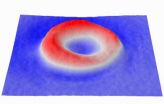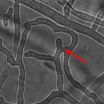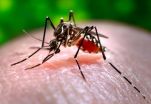(Press-News.org) Singapore, 5 September 2014 – A study conducted by National Cancer Centre Singapore (NCCS) has shown that age per se is not a contraindication to breast cancer surgery, and such surgeries may be safely performed for women aged 80 years and above. Led by Dr Ong Kong Wee, Senior Consultant in the Division of Surgical Oncology, the team consists of Dr Veronique Tan, Consultant, and Dr Lee Chee Meng, Resident Doctor. The study explores the safety of breast cancer surgery in women aged 80 years and above.
A retrospective analysis was performed on 109 elderly women who underwent surgery in NCCS and Singapore General Hospital (SGH) from 2001 – 2010. Most patients were assessed to be fit for surgery under the American Society of Anesthesiologists (ASA) physical classification status with 75 per cent of patients having an ASA physical status of 1 or 2 .
Although approximately 80 per cent of patients had 1 – 4 co-existing medical problems such as hypertension, dyslipidaemia and diabetes mellitus, there were no deaths recorded following the breast surgery. More than 60 per cent of patients recovered without any complications, while only 3 per cent developed major complications but recovered subsequently. The average length of stay in the hospital was 3 days.
"The results of this study are important as they dispel the misconception and fear among the public that surgery for elderly patients is unsafe and has a high complication rate", said Dr Ong. "Surgery is the most important modality in the treatment of breast cancer. It also relieves symptoms in patients who have tumours that do not respond to other therapies. Elderly patients should not be deprived of such treatment options."
Dr Veronique Tan, NCCS Consultant said, "Treatment options outside of surgery would only control the disease. The cancer cells may develop resistance to these treatments over time, and when patients require a salvage surgery later, it may result in even more complications with lower success rate."
Early detection and effective treatment is very important. For elderly patients such as 87 years old Mdm Tay Sai Eng who was diagnosed with stage II breast cancer, she was given surgery despite having active medical conditions, and she is now cancer-free. Dr Ong added, "Surgery should always be considered in even among elderly patients and performed expeditiously."
Breast cancer is the top cancer among women in Singapore and an estimate of 1 in 16 Singaporean women will develop breast cancer by the age of 80 with a life-time risk of 6.5 per cent. The incidence rate is expected to rise with increasing life expectancy and an ageing population.
INFORMATION: END
Study reveals breast surgery as a definitive and safe treatment for elderly patients
Results show that 97 percent of elderly patients aged above 80 years recover without major complications after surgery
2014-09-05
ELSE PRESS RELEASES FROM THIS DATE:
Banked blood grows stiffer with age, study finds
2014-09-05
CHAMPAIGN, Ill. — It may look like fresh blood and flow like fresh blood, but the longer blood is stored, the less it can carry oxygen into the tiny microcapillaries of the body, says a new study from University of Illinois researchers.
Using advanced optical techniques, the researchers measured the stiffness of the membrane surrounding red blood cells over time. They found that, even though the cells retain their shape and hemoglobin content, the membranes get stiffer, which steadily decreases the cells' functionality.
Led by electrical and computer engineering professor ...
Brain mechanism underlying the recognition of hand gestures develops even when blind
2014-09-05
Does a distinctive mechanism work in the brain of congenitally blind individuals when understanding and learning others' gestures? Or does the same mechanism as with sighted individuals work? Japanese researchers figured out that activated brain regions of congenitally blind individuals and activated brain regions of sighted individuals share common regions when recognizing human hand gestures. They indicated that a region of the neural network that recognizes others' hand gestures is formed in the same way even without visual information. The findings are discussed in ...
Synthetic messenger boosts immune system
2014-09-05
This news release is available in German. When a pathogen attacks a healthy cell in the body, T lymphocytes are tasked with identifying and destroying the infected cell. Scientists know that they undergo a "training program" for this task in the lymph nodes or the spleen. "Programming cells" play a key role here, presenting pathogen constituents to the T lymphocytes. This is how the T lymphocytes learn to recognize these components and become specialized "killer" cells. Research teams led by Prof. Percy Knolle from Klinikum rechts der Isar and the University of Bonn ...
Combination microRNA therapy shown to suppress non-small-cell lung cancer
2014-09-05
BOSTON – Micro RNAs (miRNA) have recently emerged as key therapeutic agents against cancers and are actively being evaluated in pre-clinical models of various cancers as well as in human clinical trials.
Now, new findings show that a combination therapy of two miRNAs, let-7 and miR-34, suppressed tumor growth in an animal model of non-small-cell lung cancer, offering a promising therapeutic avenue for this extremely aggressive malignancy.
Currently reported online in the journal Oncogene, the study provides two important examples of basic science discoveries making ...
Stigma as a barrier to mental health care
2014-09-05
Over 60 million Americans are thought to experience mental illness in a given year, and the impacts of mental illness are undoubtedly felt by millions more in the form of family members, friends, and coworkers. Despite the availability of effective evidence-based treatment, about 40% of individuals with serious mental illness do not receive care and many who begin an intervention fail to complete it. A new report, published in Psychological Science in the Public Interest, a journal of the Association for Psychological Science, investigates stigma as a significant barrier ...
An 'anchor' that keeps proteins together
2014-09-05
All organisms react to different external and internal stimuli: if, for example, the hyphae fungus Sordaria macrospora is supplied with food, it produces fruiting bodies as part of its oestrous cycle. To initiate this reaction, signals have to be transmitted within the cell, which are conveyed by proteins. Physical proximity is a fundamental requirement for different proteins to be able to communicate with each other. Generating that proximity is what scaffolding proteins do, by binding like an anchor to several proteins and keeping them together for the duration of signal ...
Use of dengue vaccine may cause short-term spikes in its prevalence
2014-09-05
CORVALLIS, Ore. – As researchers continue to work toward vaccines for serious tropical diseases such as dengue fever, experts caution in a new report that such vaccines will probably cause temporary but significant spikes in the disease in the years after they are first used.
This counter-intuitive and unwanted result could lead to frustrated policy makers, a skeptical public and concerns that the vaccine is making things worse instead of better, researchers say.
In fact, it will just be the natural result of complex interactions between less-than-perfect vaccine protection ...
E-cigarettes: Studies presented at the ERS Congress
2014-09-05
Munich, Germany: The latest evidence on the potential benefits and risks of e-cigarettes has been presented this week at the European Respiratory Society's International Congress in Munich.
Electronic cigarettes have received much attention in recent years as their use has increased across Europe. As the devices are relatively new, there is little long-term evidence detailing the potential harm or benefit that these devices can cause.
During the ERS Congress, a number of abstracts will be presented on the topic. The key outcomes are revealed here:
Research into ...
IBD patients: Consider giving infliximab a second try
2014-09-05
Bethesda, MD (Sept. 5, 2014) — Restarting infliximab therapy after a drug holiday is safe and effective for patients with inflammatory bowel disease (IBD), according to a new study1 in Clinical Gastroenterology and Hepatology, the official clinical practice journal of the American Gastroenterological Association.
"Our findings suggest that starting infliximab after a history of prior therapy can be very beneficial to patients," said lead study author Filip Baert, MD, PhD, from the department of gastroenterology, University Hospitals Leuven in Belgium. "Most striking, ...
New blood test could offer more tailored treatment of ovarian cancer
2014-09-05
A new blood test allowing doctors to predict which ovarian cancer patients will respond to particular types of treatment is a step closer following a new study by Manchester scientists.
Researchers from The University of Manchester and The Christie NHS Foundation Trust - both part of Manchester Cancer Research Centre - say the test could be developed and used in hospitals within the next few years.
It would mean medics could see which patients could benefit from blood vessel-targeting drugs - such as bevacizumab - in addition to conventional therapy. Meanwhilehile others ...
LAST 30 PRESS RELEASES:
The Lancet: Single daily pill shows promise as replacement for complex, multi-tablet HIV treatment regimens
Single daily pill shows promise as replacement for complex, multi-tablet HIV treatment regimens
Black Americans face increasingly higher risk of gun homicide death than White Americans
Flagging claims about cancer treatment on social media as potentially false might help reduce spreading of misinformation, per online experiment with 1,051 US adults
Yawns in healthy fetuses might indicate mild distress
Conservation agriculture, including no-dig, crop-rotation and mulching methods, reduces water runoff and soil loss and boosts crop yield by as much as 122%, in Ethiopian trial
Tropical flowers are blooming weeks later than they used to through climate change
Risk of whale entanglement in fishing gear tied to size of cool-water habitat
Climate change could fragment habitat for monarch butterflies, disrupting mass migration
Neurosurgeons are really good at removing brain tumors, and they’re about to get even better
Almost 1-in-3 American adolescents has diabetes or prediabetes, with waist-to-height ratio the strongest independent predictor of prediabetes/diabetes, reveals survey of 1,998 adolescents (10-19 years
Researchers sharpen understanding of how the body responds to energy demands from exercise
New “lock-and-key” chemistry
Benzodiazepine use declines across the U.S., led by reductions in older adults
How recycled sewage could make the moon or Mars suitable for growing crops
Don’t Panic: ‘Humanity’s Last Exam’ has begun
A robust new telecom qubit in silicon
Vertebrate paleontology has a numbers problem. Computer vision can help
Reinforced enzyme expression drives high production of durable lactate-based polyester
In Rett syndrome, leaky brain blood vessels traced to microRNA
Scientists sharpen genetic maps to help pinpoint DNA changes that influence human health traits and disease risk
AI, monkey brains, and the virtue of small thinking
Firearm mortality and equitable access to trauma care in Chicago
Worldwide radiation dose in coronary artery disease diagnostic imaging
Heat and pregnancy
Superagers’ brains have a ‘resilience signature,’ and it’s all about neuron growth
New research sheds light on why eczema so often begins in childhood
Small models, big insights into vision
Finding new ways to kill bacteria
An endangered natural pharmacy hidden in coral reefs
[Press-News.org] Study reveals breast surgery as a definitive and safe treatment for elderly patientsResults show that 97 percent of elderly patients aged above 80 years recover without major complications after surgery


